A review of allegations of plagiarism in:
Breaking India: Western Interventions in Dravidian and Dalit Faultlines, by Rajiv Malhotra (RM), Aravindan Neelakandan (AN)
(Amaryllis, 2011)
By
Independent Readers and Reviewers
- Allegation that on p. 26 authors plagiarized from Wilhem Halfbass (1988).
Analysis: This is not true: In the verbatim quote the authors have exactly specified the source in endnote 19 of chapter 3 (see p. 478). The source being Halfbass (1988, p.3). The two lines which immediately follow after that are not a ‘verbatim quote’ and it is very obvious to the reader that it is a continuation from the same source as cited above. This is standard academic practice known to anyone who publishes in scientific journals. Unless it is a verbatim quote, an exact citation for each statement is not necessary.
Recommendation: It will be better to add an (ibid.) in the next edition.
For the original text and references see:
- Allegation that on p. 26 authors plagiarized from Maurice Olender (1992)
Analysis: This seems more to be a simple copy editing slip, because the closely preceding references (Nr. 16, 17 and 18) are to Olender (1992) which makes it substantially clear to the reader that the ensuing text and context is heavily drawn from Olender (1992). This is also evident from neighboring references (Nr. 7, 25 and 26) attributed to Olender (1992). If there were any mal intentions, Olender would not be referred at all. This is a simple mix up between Max Mueller and Olender for attribution, not a case of authors wanting to avoid attributing at all.
Recommendation: Endnote 21 in p. 478 of Breaking India should be Olender. This can be followed by the current reference to Max Muller.
For the original text and references see:
Overall assessment on Breaking India
Based on these two very minor aberrations a plagiarism test by standard software (such as TURNITIN http://en.writecheck.com/) would not throw a figure more than acceptable limits. Of course this varies from subject areas and/or type of publications. But the main issue in plagiarism is an act of direct appropriation of ideas and using direct quotes while claiming to be the author’s own. This, too, is tolerated if it does not cross the norm range. There is nothing to suggest in the above instances that was appropriation of ideas or quotes without acknowledgment to third parties.
Recommendation: No change.
A review of allegations of plagiarism in:
Indra’s Net: Defending Hinduism’s Philosophical Unity, by Rajiv Malhotra (HarperCollins, 2014)
By
Independent Readers and Reviewers
- Allegation that on p. 158 author has plagiarized from Nicholson (2010)
Analysis: Not a valid criticism. The text in question is sufficiently rephrased not to justify putting it under ‘quotes’. This means that by standard practice it is not needed to immediately place the reference at the end of the sentence. Yet, author does specify the exact reference for this phrase which is from Nicholson (2010, p. 3). There is absolutely nothing erroneous or disingenuous about it.
Recommendation: No change.
For the original text and references see:
- Allegation that on p. 160 author plagiarized from Nicholson (2010)
Analysis: This is no plagiarism. The complainant does not seem to be well versed with scientific publishing. Author rightly refers to both the original sources as used by Nicholson (2010) in p.116. Firstly, there is sufficient paraphrasing not to justify putting them under ‘quotes’. Yet, at the exact places the end-notes 14 and 15 direct the reader to the original sources. Endnote 15 is exactly Vishnu Purana 6.7.35 (unless the complainant implies that Nicholson, 2010 holds to copyright to Vishnu Purana). Endnote 15 is exactly as used by Nicholson (2010). This is again a minor glitch which can be revised in next edition/s.
Furthermore, the chapter in question (Chapter 8) is replete with references to Nicolson, 2010. See Endnotes 1, 3, 5, 6, 7, 9, 17, 18, 20, 27, 28, and 29. This makes it very evident to the reader of the continuity of the passages and does not give a sense of disconnecting the reader from Nicholson as source. This is consistent with the best academic practices.
Moreover, the complainant makes an error in stating that ‘Malhotra inserts two endnotes, nos 14 and 15. On page 326 of Indra’s Net’. The endnotes are on page 328!
Recommendation: End note 15 to be written BS 4.1.15 and Ch. Up. 6.14.2 and it can be optionally added, ‘as also stated in Nicholson, 2010’.
For the original text and references see:
- Allegation that on p. 162-163 author plagiarized from Nicholson (2010)
Analysis: This criticism reflects lack of probity of the complainant and not the author. There are two minor but important differences in the text from Nicholson (2010, pp.122-123) and the text by author.
1. Author inserts the word ‘reconciled’ which is not used by Nicholson.
2. Author leaves out ‘contemplative’ which was used by Nicolson.
These two changes can be attributed to author’s own literary license which makes a different reading of the intent as used by Nicholson. Therefore, author is sufficiently justified to leave out ‘quotation’ marks as this is NOT verbatim. In fact, using ‘quotations’ would be a case of false attribution to the sourced author. Also, author gives attribution to Nicholson in end note 18 (p.329) very appropriately without using ‘quotation’ which is the correct method.
Recommendation: No change.
For the original text and references see:
- Allegation that on pp. 162-163 author plagiarized from Nicholson (2010) and wrongly attributed to Vivekananda (and not Vijnanabhikshu)
Analysis: The complainant is not accurate that the words are verbatim. The words used are phrases like ‘emphasized conflict and contradiction’ and ‘philosophical and interpretive ingenuity’. As per the norms under phraseology and plagiarism, common phrases can be used independently. The whole sentence/s is not verbatim and hence does NOT justify quotes. Yet, author has referred to Nicholson everywhere surrounding the text which means the reader is already clear by now that these discussions come from Nicholson. There is no need to add reference for Nicholson at the end of each sentence. This is especially true when author uses these phrases to typify Vivekananda and not Vijnanabhikshu as done in the original by Nicholson. It would have been misleading if he claimed direct attribution to Nicholson. Using the phrases to characterize Vivekananda instead of Vijnanabhikshu is totally acceptable as a part of the literary license of the author because this is not inconsistent with the immediately preceding texts. The whole point of the section is to show the continuity from Vijnanabhikshu up to Vivekananda. For example p. 162 last paragraph begins with the sentence ‘Vijnanabhikshu had contributed to the emergence of a proto-Hinduism to which Vivekananda became a worthy heir….’ And then author uses the similar phrase to typify Vivekananda which was used earlier for Vijnanabhikshu. There is nothing wrong here. The complainant seems to confuse between ‘plagiarized’ texts and ‘similar’ texts. This is an important distinction in scientific peer-review because of which it is standard that assessments of plagiarism is not made mechanically but by reasonable assessment of what is plagiarized and what is similar.
Recommendation: To clear any misunderstanding, author might add that ‘Vivekandanda’s challenge, consistent with Vijnanabhikshu’s, was to….’
For the original text and references see:
- Allegation that on p. 329 author has self-plagiarized
Analysis: This complainant finds this item ‘just for fun’. It would have been a case of self-plagiarism if author had attributed either endnote 19 or 20 to himself! But he has attributed both of them to Nicholson (2010, pp.65, 78). As for plagiarism from Nicholson is concerned, it again needs to be noted that none of the three sentences in the highlighted text by the complainant is verbatim and hence cannot be accurately put within ‘quotations’. Additionally, author has cited Nicholson appropriately.
Recommendation: No change.
For the original text and references see
- Allegation that on Endnote 2, p. 344 author plagiarized from Nicholson (2010)
Analysis: This appears to be an omission which needs to be corrected in a revised version. It is certainly not plagiarism because in the same endnote the author has referred Nicholson twice, each time with exact page numbers. See second half of endnote 2 on page 345 for references to Nicholson (2010, pp.52-53) and Nicholson (2010, p.39). If there was any intent to plagiarize, the author would have refrained from referring to Nicholson at all. This again brings one to surmise that the complainant is on a witch-hunt and not applying reasonable judgment which is essential in any fair review.
Recommendation: No change.
For the original text and references see
- Allegation that on Endnote 2, p. 344 author plagiarized from Nicholson (2010)
Analysis: The response follows from response nr. 6 above. Author does cite Nicholson several times in the second half of the endnote and also writes ‘According to Nicholson’. This is not a lack of attribution to Nicholson. Again, unless the entire text is verbatim it cannot be put under quotes or else it would be a false quotation.
Recommendation: No change.
For the original text and references see:
- Allegation that on Endnote 2, p.345 author used deception in double referencing Nicholson (2010).
Analysis: This is a strange self-contradiction by the complainant. The reader of Endnote 2 will be sufficiently clear that there is no misappropriation of the original author’s intent. By the prefix ‘According to Nicholson’ this is only made stronger. This is not even remotely plagiaristic. This is a combination of scientific citation and use of literary license to convey an idea clearly to the reader. This is how authors are expected to add value and extend others’ scholarship.
Recommendation: No change.
For the original text and references see
- Allegation that on Endnote 4, p.346 Indra’s Net: criticism that RM has not cited Nicholson (2010).
Analysis: There is sufficient paraphrasing not to justify quotations. But, nevertheless, Nicholson could have been cited.
Recommendation: The following should be added at the closing of Endnote 4: Summarized from Nicholson 2010, 37, 45-46
Overall assessment of Indra’s Net:
The overall evidence does not even remotely suggest plagiarism. The complainant often confuses ‘similar’ text with ‘plagiarized’ text, not being able to identify differences between the two as per not only the rules but also norms of scientific publishing. To perfect this important work for the future, we recommend the corrections be made as indicated above in a future edition. These aberrations fall well within the statistically acceptable range of errors in a writing of the scale as presented in this book. An overall assessment not only overrules any impropriety but appreciates the author’s deftness involved in presenting such a complex matter for the reader’s easy access.

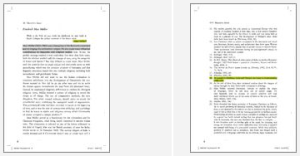
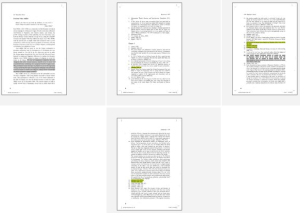
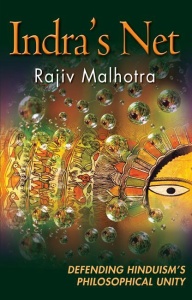

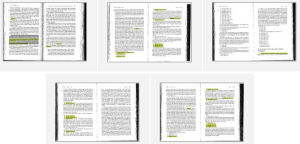
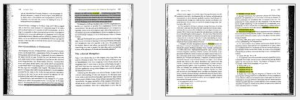
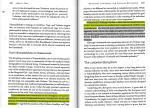



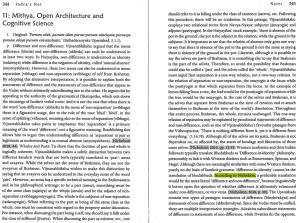
Thank you, “Independent Readers and Reviewers”, for your efforts in compiling 1) “analysis” of nine allegations and “recommendation” thereof 2) Overall assessment. Your efforts have the potential to keep conversations focused on facts and hypothesis rather than personalities and emotions.
LikeLiked by 3 people
It is amusing to see these imbecilic leftist mercenaries and mentally colonized puppets trying to accuse Rajiv Malhotra,a colossal intellect,of plagiarism. They are not worth the dust on his feet.They don’t have the temerity to meet him head on and debate him. Only thing left for them is gutter journalism.Harper & Collins should not yield to this pseudo intellectual mafiosi.
LikeLiked by 3 people
We are indeed very proud of Mr. Rajeev Malhotra’s work which is eye opening with lot facts on the Indian civilization and Hindu culture! He is a great academic who does not allow any emotions and speaks with excellent command on the subject without criticizing any other religious sentiments!
LikeLiked by 3 people
good rebuttal on the complaint of the accuser by independent reviewers. the accuser probably thinks that nobody will review his opinion and accept his own version of the complaint.
dr.v.s vedam
LikeLiked by 3 people
Standard reference practices are very much in evidence. ‘Over-referencing’ when the context is clear is not a standard practice either! Thank you for the clarity in the analysis of each statement.
LikeLiked by 1 person
Rajiv ji books are excellent and good for all mankind. These brings truth to us without any bias. Great work n great service to mankind. Keep it up. May God Bless you.
Sincerely.
Bijender
LikeLiked by 3 people
Thank you to the independent reviewers for taking on false and misleading accusations by anti Hindu zealots of the brown pseudo sec & pro-communist variety as well as from a few white American Christian bigots (why do they forget the genocides, rape and ethno religious cleansing of millions of indigenous people in Africa, Asia and America?) to undermine the value of the phenomenal and painstaking work done by Rajiv Malhotra and his ongoing engagement with the audience that have destroyed many myths propagated against Hinduism and restored pride of Hindus living in India and beyond & encouraged many people to challenge those factions who think they should have the final word.
LikeLiked by 2 people
The Hinduphobic elements are exposing themselves by resorting to such cheap tactics and attacking Rajiv. Now they can expect the same level of scrutiny of their works by our camp. Just imagine how much time and resources the Hinduphobes must have spent to find these so-called instances of “plagiarism”. It points to us the new strategy that we must adopt too.
LikeLiked by 2 people
When India freedom fighters started freedom struggle against British Empire, there were Indian sepoys supporting and justifying rule of British Imperialist because they were blindly convinced that British Imperialist are better administrator and they are better off having imperialist rule them than having self-rule. After a long struggle, India and many other countries got independence but intellectual slavery continued, westerners are running a academic cartel and behaving like a imperialist and have support of sepoys. Any dissenting voice (like that of Rajiv Malhotra) will be crushed with illogical ruthlessness but they don’t know that this freedom struggle has gather a critical mass and imperialist’s days are numbered. So, I wish all the best to Rajiv Malhotra and we are with him.
LikeLiked by 1 person
The fall out was probably along expected lines especially when Bharat was forced on us through a Western view and forcefully propagated to pursue a so called secular narrative by left leaning historians to set a larger political agenda. However the contours of communication and debate have changed and authors like Rajiv Malhotra epitomize this change where a transparent reading of our ancient and rich cultural past should resonate across the globe of a heritage which got severely derailed in the last thousand years but which has a lot to offer particularly to young Indians and this has to be pursued with vigour through WORDS which has always been our strength. This rediscovery had begun and is irreversible to rubbish the so called Western idea of ‘mythology’ with our ancient history and possibly prehistory.
LikeLiked by 1 person
From this response to the molehill claims which look so childish but we have to go through such obstacles without getting emotionally tired. These leftists will not only tolerate but defend mountain high evidence of impropriety of their western authors writing without pointing any fingers let alone accusing them. These are the battles we have to fight on all levels. Hope Rajivaji focusees on his goals while we his supporters fight for him and defend his position as it the right thing to do. Slowly people will accept with or without agreeing which is not important but accept nonetheless.
LikeLike
The reality is when cultures meet flow happens, documentation, interpretation, and attempts at control and Labelling of such experiences.
For example when Alexander visited India the Greeks created a word gymnosophist to show ” their” perception of things ” Indian”. Malhotra is merely pointing to “their” wrong perception of things ” indian”
LikeLike
His books are original work
LikeLike
Rajiv Malhotra has been following a line which is basically sound and bodes well not only for India, but for the present as well as the future of the world. Colonialists of all hues and colours, who plan and initiate subjugation with the aid of their army of agents and servants, raise a hue and cry of foul-play to perpetuate their stake. There was a time when Indians doing creative writing in English would not be recognized outside India, nor would be scientists like Jagadish Chandra Bose. The situation has drastically changed today due to objective constraints. The philosophy or spirituality of India, however, still remains unrecognized at the administrative and academic levels in the West. The reason is that the recognition will necessitate a total overhaul of the culture of the colonialists, possibly precipitating a crisis in identity rooted in exploitation. It is no wonder, therefore, that possible technical flaws only are highlighted in Malhotra’s work. What is clear from this is that technicalities are the last resort for the opponents where the main issues that Malhotra has been focusing cannot be contested. This indeed a win for him.
LikeLike